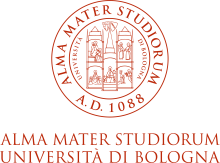Corporate models of the university represent a betrayal of a tradition stretching back over 900 years.
That was the argument of Howard Hotson, professor of early modern intellectual history at the University of Oxford, in a lecture on ¡°Educating Homo sapiens¡±, delivered at the University of Brighton on 2 February as part of the David Watson Memorial Lecture Series.
Ever since the foundation of the University of Bologna in 1088, he argued, universities had always had ¡°a dual purpose¡±, yet ¡°it was almost invariably the higher purposes, benefiting the community at large, which were regarded as the primary goal of the university; and the immediate goal of educating individual students were regarded primarily as a means to this end¡±.
Although ¡°the precise ways in which these dual purposes have been understood have gradually altered¡±, it was quite wrong to ¡°regard universities as ¡®shape shifters¡¯, changing their fundamental purposes repeatedly in response to changing social needs¡±.
ÁñÁ«ÊÓƵ
This background, Professor Hotson went on, ¡°put the recent ¡®radical shake-up of higher education¡¯...in fresh perspective¡±.
When Gordon Brown, the former prime minister, took universities out of the Department for Education and ¡°subordinate[d] universities to a new Department for Business, Innovation and Skills¡±, it was justified in terms which made clear that ¡°business sets the objectives. Science serves them. Skills serve business and science. And universities provide skills.¡±
ÁñÁ«ÊÓƵ
Far from being ¡°just another adjustment which the university must make to changing circumstances¡±, this represented ¡°the dramatic imposition of a new set of priorities from outside, unprecedented in the 928-year history of this institution¡±.
Yet ¡°in order to align the university¡with their own interests and purposes¡±, Professor Hotson explained, corporations had ¡°argue[d] that their needs coincide with those of ordinary people. The key to doing so is to propagate the view that ordinary people are just like corporations: single-mindedly devoted to maximising their profit.
¡°So the ¡®radical reform¡¯ of the university,¡± he went on, ¡°and all the other institutions of society, rests ultimately on the redefinition of the purposes of human life as coinciding with those of the corporation: Homo economicus, like the legal person of the corporation, is a purely selfish and purely materialistic entity, single-mindedly devoted to maximising its material rewards.¡±
He added that the ¡°battle between the university and the corporation ¨C or between the old conception of the university and the new one ¨C therefore ultimately rests on competing conceptions of the good life for human beings, and therefore on competing conceptions of human nature¡±.
ÁñÁ«ÊÓƵ
Yet despite the obvious power of corporations, Professor Hotson believed there were ways of fighting back. A good start would be ¡°pointing out the obvious: Homo economicus is not an adequate account of human nature¡± - and was therefore a good basis for neither ¡°a sound economy¡± nor ¡°a sound educational system¡±.
He also said that if the foundations of the corporate university were ¡°based on a demonstrably inadequate account of human nature¡±, the academic community was well suited to ¡°begin dismantling it intellectually, and erecting something more adequate in its place¡±.
By the end of this process, Professor Hotson predicted, ¡°Homo economicus will evolve into Homo sapiens¡±.
Register to continue
Why register?
- Registration is free and only takes a moment
- Once registered, you can read 3 articles a month
- Sign up for our newsletter
Subscribe
Or subscribe for unlimited access to:
- Unlimited access to news, views, insights & reviews
- Digital editions
- Digital access to °Õ±á·¡¡¯²õ university and college rankings analysis
Already registered or a current subscriber? Login






